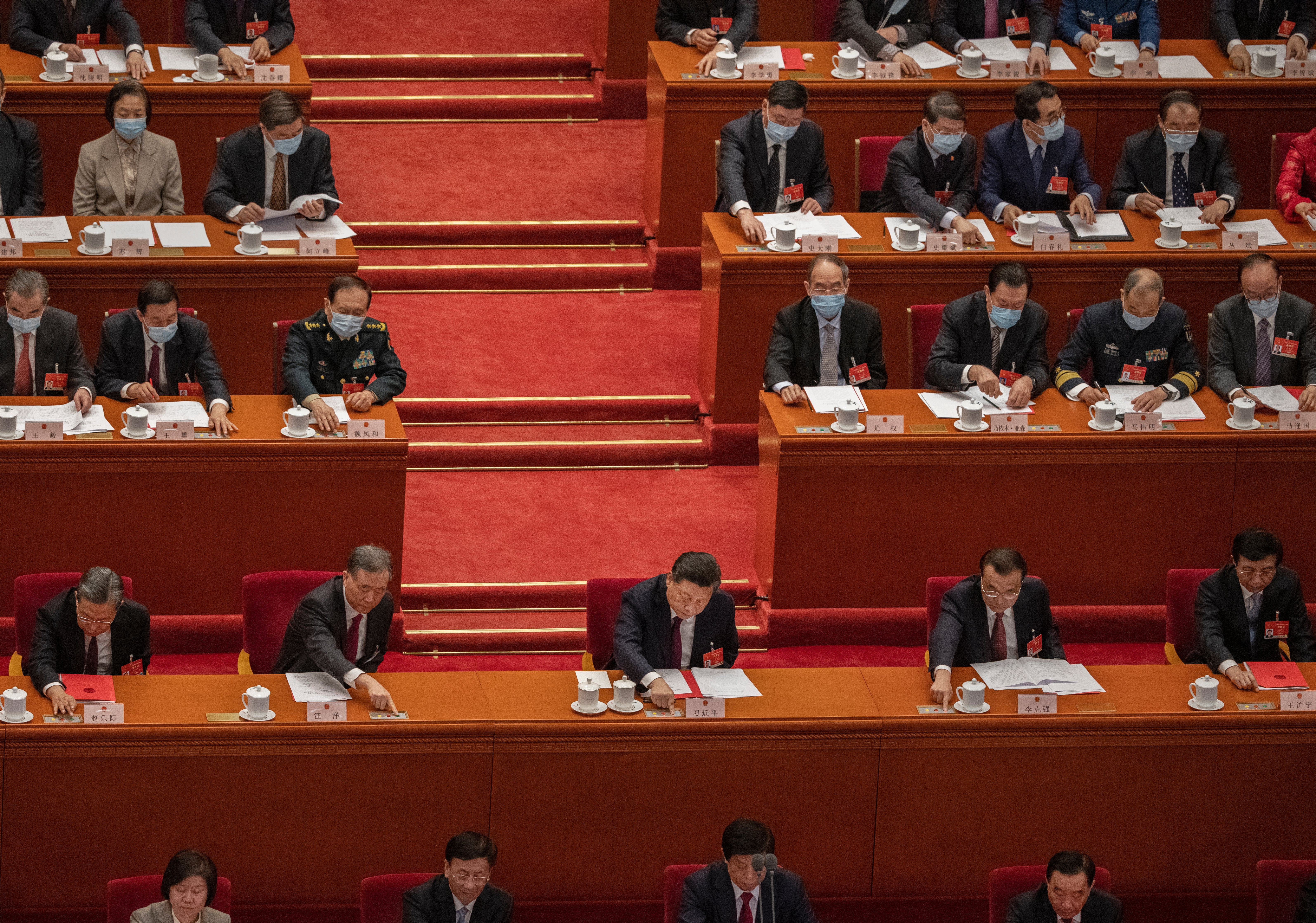China presses ahead with overhaul of Hong Kong electoral system
‘This is the latest step by Beijing to hollow out the space for democratic debate in Hong Kong’

Your support helps us to tell the story
From reproductive rights to climate change to Big Tech, The Independent is on the ground when the story is developing. Whether it's investigating the financials of Elon Musk's pro-Trump PAC or producing our latest documentary, 'The A Word', which shines a light on the American women fighting for reproductive rights, we know how important it is to parse out the facts from the messaging.
At such a critical moment in US history, we need reporters on the ground. Your donation allows us to keep sending journalists to speak to both sides of the story.
The Independent is trusted by Americans across the entire political spectrum. And unlike many other quality news outlets, we choose not to lock Americans out of our reporting and analysis with paywalls. We believe quality journalism should be available to everyone, paid for by those who can afford it.
Your support makes all the difference.China’s parliament has approved a draft decision to change Hong Kong’s electoral system, further reducing democratic representation in the city’s institutions and introducing a mechanism to vet politicians’ loyalty to Beijing.
The measures are part of Beijing’s efforts to consolidate its increasingly authoritarian grip over the global financial hub following the imposition of a national security law in June, which critics see as a tool to crush dissent.
Beijing is responding to pro-democracy protests in Hong Kong in 2019, which it saw as a threat to China’s national security. Since then, most high-profile democratic politicians and activists have been sent to jail or are in self-exile.
“The central authorities have good intentions,” the Liaison Office, Beijing’s representative body in Hong Kong, said in a statement on Thursday.
“We expect all sectors of the community and the general public to take ownership of the work to amend the law and offer suggestions, so that a strong positive energy can be gathered under the banner of patriotism and love for Hong Kong.”
The legislators gathered in the Great Hall of the People burst into sustained applause when the 2,895 to 0 vote tally, with one abstention, was projected onto screens.
In a separate statement, Hong Kong leader Carrie Lam pledged her “staunch support” and expressed “sincere gratitude.”
The restructuring is aimed at getting the city “back on the right track,” Ms Lam said.
The changes virtually eliminate any possibility of the opposition affecting the outcome of elections in the former British colony, whose return to Chinese rule in 1997 came with a promise of a high degree of autonomy.
The blanket requirement for “patriotism” raises the risk that politicians will start competing over who is more loyal to Beijing, rather than who has the better ideas for how the city should be governed, analysts say.
Hong Kong secretary for mainland and constitutional affairs Erick Tsang has defined patriotism as “holistic love” for China, including the leadership of the Chinese Communist Party.
British foreign secretary Dominic Raab said on Thursday that proposed changes to Hong Kong’s electoral system would further undermine international trust in China.
“This is the latest step by Beijing to hollow out the space for democratic debate in Hong Kong,” Mr Raab said.
The draft decision said the move will help “develop a democratic system in line with Hong Kong’s actual situation” and protect residents’ “rights to vote and be voted,” according to state news agency Xinhua.
The measures will alter the size and composition of Hong Kong’s legislature and an electoral committee selecting the chief executive in favour of pro-Beijing figures.
The committee will also be given powers to select many city legislators. A new mechanism will be set up to vet candidates and screen election winners’ behaviour to make sure only those seen as patriots rule Hong Kong.
Beijing will increase the size of the electoral committee from 1,200 to 1,500, and the legislature from 70 to 90 seats.
Currently half of the 70 seats in the Legislative Council, known as LegCo, are directly elected, a proportion which will shrink with the extra seats picked by the electoral committee. The other half represents industries, unions, and professions and is largely stacked with pro-Beijing figures.
Beijing had promised universal suffrage as an ultimate goal for Hong Kong in its mini-constitution, the Basic Law.
Critics say the changes to the electoral system move Hong Kong in the opposite direction, leaving the democratic opposition with the most limited space it has ever had since the 1997 handover, if any at all.
It is not clear what shape any future opposition could take and how its message could comply with loyalty requirements.
Reuters



Join our commenting forum
Join thought-provoking conversations, follow other Independent readers and see their replies
Comments